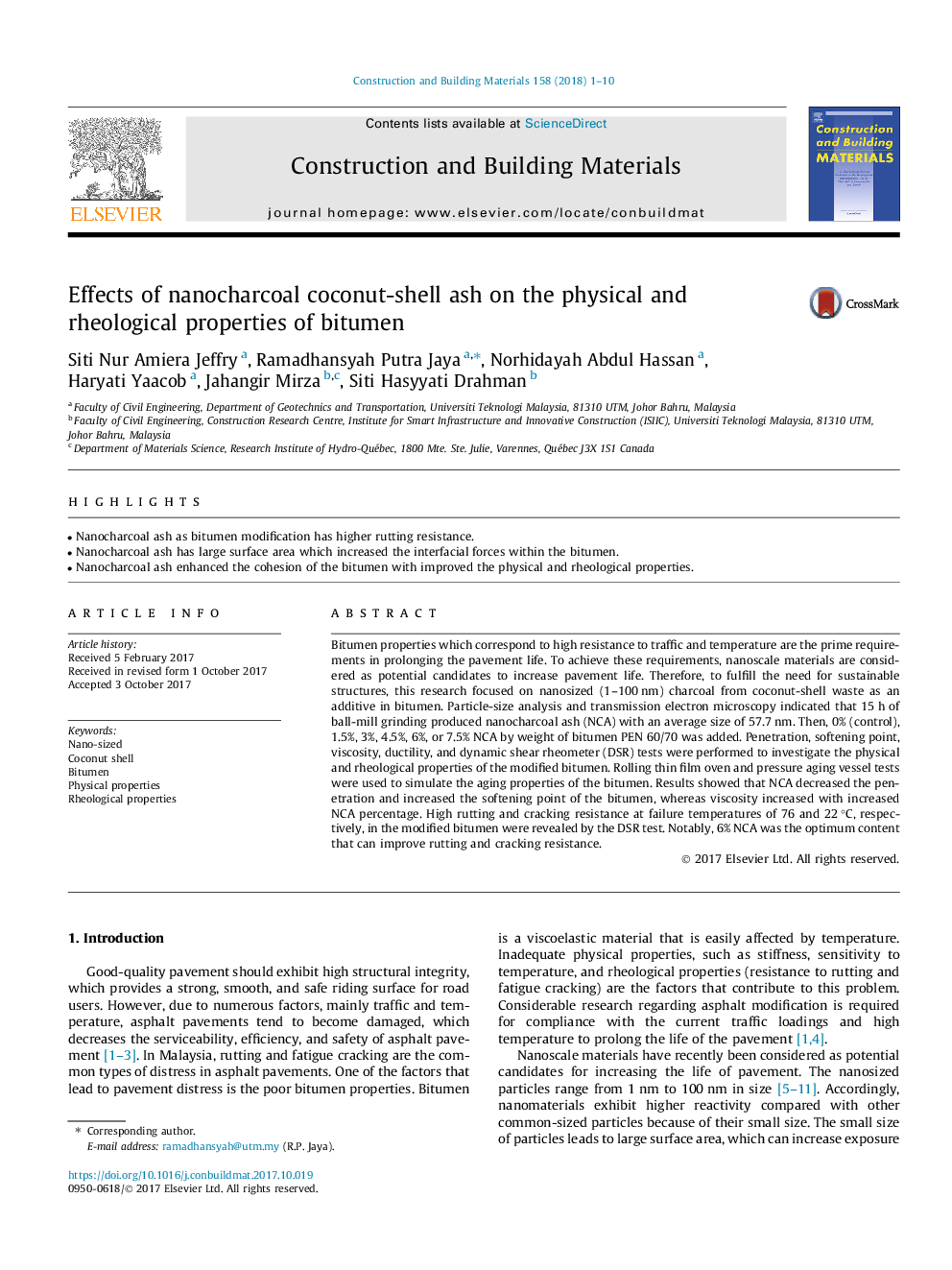| Article ID | Journal | Published Year | Pages | File Type |
|---|---|---|---|---|
| 6717557 | Construction and Building Materials | 2018 | 10 Pages |
Abstract
Bitumen properties which correspond to high resistance to traffic and temperature are the prime requirements in prolonging the pavement life. To achieve these requirements, nanoscale materials are considered as potential candidates to increase pavement life. Therefore, to fulfill the need for sustainable structures, this research focused on nanosized (1-100â¯nm) charcoal from coconut-shell waste as an additive in bitumen. Particle-size analysis and transmission electron microscopy indicated that 15â¯h of ball-mill grinding produced nanocharcoal ash (NCA) with an average size of 57.7â¯nm. Then, 0% (control), 1.5%, 3%, 4.5%, 6%, or 7.5% NCA by weight of bitumen PEN 60/70 was added. Penetration, softening point, viscosity, ductility, and dynamic shear rheometer (DSR) tests were performed to investigate the physical and rheological properties of the modified bitumen. Rolling thin film oven and pressure aging vessel tests were used to simulate the aging properties of the bitumen. Results showed that NCA decreased the penetration and increased the softening point of the bitumen, whereas viscosity increased with increased NCA percentage. High rutting and cracking resistance at failure temperatures of 76 and 22â¯Â°C, respectively, in the modified bitumen were revealed by the DSR test. Notably, 6% NCA was the optimum content that can improve rutting and cracking resistance.
Related Topics
Physical Sciences and Engineering
Engineering
Civil and Structural Engineering
Authors
Siti Nur Amiera Jeffry, Ramadhansyah Putra Jaya, Norhidayah Abdul Hassan, Haryati Yaacob, Jahangir Mirza, Siti Hasyyati Drahman,
